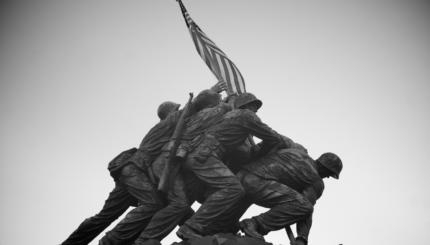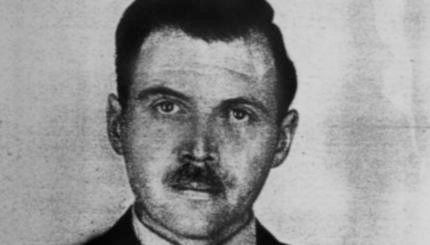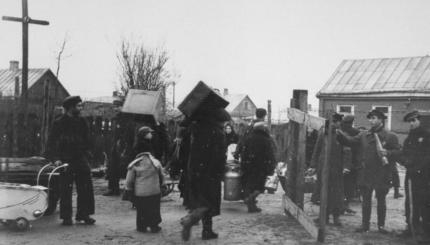November 9, 2013, marks the 75th anniversary of Kristallnacht, “The Night of Broken Glass.” It is the night many point to as the beginning of the Holocaust.
I remember observing Kristallnacht in the small Jewish community to which I belonged as a child. We were the only Jewish family in our tiny, rural town, and we commuted to Flint, Michigan, to participate in Jewish life.
In Michigan, by November, it’s usually pretty cold after dark. My memories of Kristallnacht services, held outdoors, consist mostly of people huddled together for warmth; solemn readings of prayers and poems; candles lit, blown out, and lit again. The dark, cold night lent itself well to an imaginative child putting herself in her ancestor’s shoes, feeling the cold grip of fear they must have felt as windows shattered and screams sounded and evil went from local to government-sanctioned.
Recalling these events, the eve of the Holocaust, people from all walks of life came together over a brokenness in the world.
Shortly after I moved to Mississippi in 2003, I was invited to attend another sort of memorial service. Several of us drove from Jackson up to Neshoba County, Mississippi, for the 39th anniversary of Freedom Summer, and in particular to commemorate the brutal murders of three Civil Rights workers – James Chaney, Andrew Goodman, and Michael Schwerner.
One black man from Mississippi, two Jewish men from up North, all working for freedom – all killed on a dark, terror-filled night. The memorial service for them took place in a small Baptist church. In Mississippi. In June. There was no central air conditioning, just people crammed together, waving church fans, sweating, crying, singing gospel hymns. The sweltering, singing church lent itself well to an imaginative young woman putting herself in the civil rights fighters’ shoes, feeling the echoes of the evil they faced and the losses their families endured. Though this was my first time at that church, there was something so familiar about where we were and what we weredoing.
Recalling the events, the casualties of Freedom Summer, people from all walks of life had come together over a brokenness in the world.
This November, we mark 75 years since Kristallnacht. This coming June, we will mark 50 years since Freedom Summer.
We are always hesitant to connect tragedies, to link one loss to another, fearing diminishing the pain or significance of either. Facing these two milestones of memory, I find that I cannot – I dare not – compare the Holocaust to the Civil Rights movement. However, I do find that I absolutely can, and will, and must compare the way that both of these events are remembered. Years later, people of different faiths and backgrounds come together, demonstrating by their very presence that they understand this truth about brokenness: Bad things happen when good people do nothing, and what impacts one group impacts us all.
We do not always learn this the first time, but when we come together and remember, our understanding is strengthened. We acknowledge past wrongs and pledge to build something better in the future.
The histories may be different. The weather, the setting, the stories are not the same. But whether we are standing outside and shivering in the cold, or fanning ourselves in an oppressive heat, we come together over brokenness. We remember. And together we say, amen.
Moved by this post?
Read more like this one in MyJewishLearning’s weekly blogs newsletter
.



